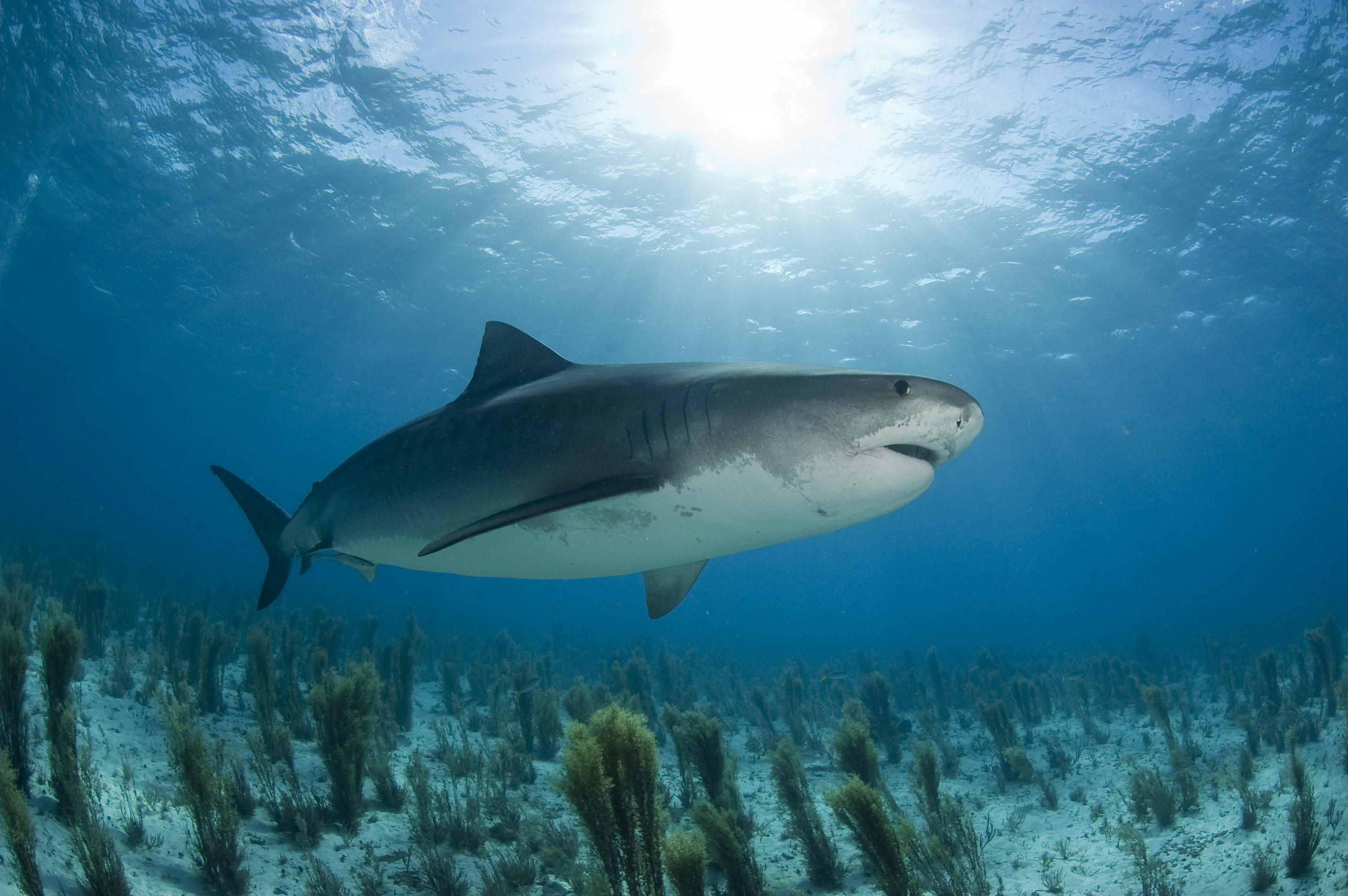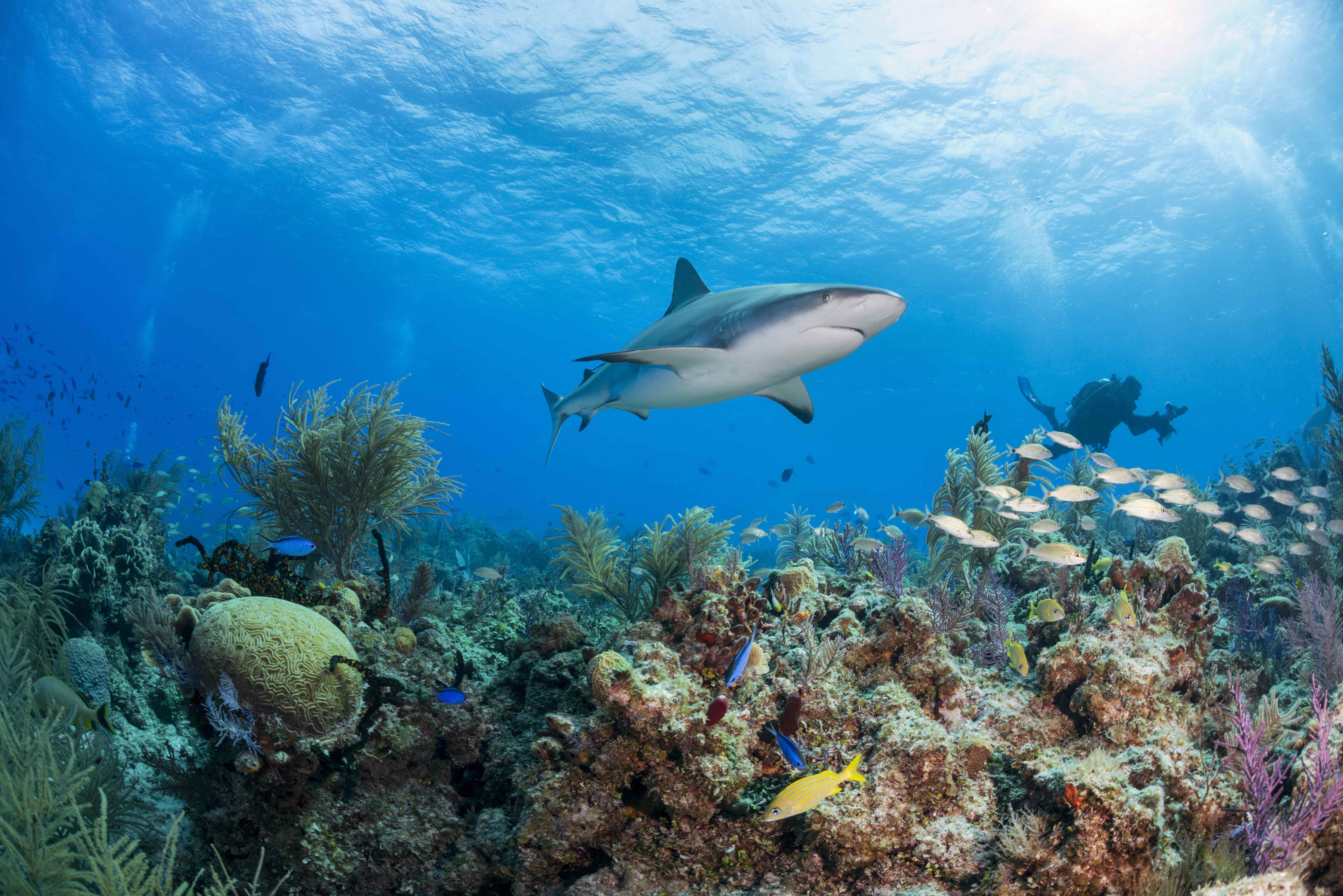The Paris Accord Was Good For Sharks. Now…Not So Sure

The recent decision by the United States to pull out of the Paris Climate Accord leaves those of us who love sharks wondering what effect this decision will have on their homes. The agreement, which seeks to limit climate change, had been great for the finned apex predators who require a very specific kind of environment to mate and thrive.
Sharks may be known for their fearsome jaws and ravenous appetites, but the latter actually helps keep the ocean's fragile food chain in balance. Many sharks are scavengers that gobble up dead and dying animals and plants, so they're crucial to ridding the oceans of waste. This is just one of the many shark-related benefits humans enjoys.
With their natural habitat imperiled, here are 4 ways the accord helped sharks that may soon disappear:
It kept the oceans perfectly balanced
As fossil fuels burn, carbon dioxide is released and absorbed into sea water, making our oceans more acidic. It also changes the salinity and temperature of the water, creating conditions difficult for sharks to survive. Climate change has also caused glaciers to melt, releasing fresh water into the ocean and contributing to higher sea levels. This elevation can cause erosion of coastal lands, which leads to more pollution dragged into the shallow waters where sharks mate and spawn.
It protected their food sources
Rising temperatures also make it difficult for marine life to form calcareous shells, which can throw off the marine food chain that sharks rely on. "Scientists have already observed that acidified waters are beginning to dissolve the shells of pteropods, a common type of plankton, that are food for other tiny species, which are then eaten by bigger creatures up the chain," says John Hocevar, a marine biologist with Greenpeace.
Since sharks are at the top of the food chain, it's impossible to know how they will be impacted. But so far, elevated water temperatures are killing off coral reefs, and the species that rely on them, which are home to whitetips, blacktips, and several other reef shark species. With their favorite hunting grounds disappearing, we may soon see these species of sharks begin to disappear.

It maintained natural "ocean highways" sharks have used for centuries
"Climate change can cause shifts in major ocean currents, which can cause major problems for migratory animals like sharks," explains Hocevar. Because water with lower salinity is less dense, the added freshwater from melting glaciers is affecting ocean currents. These currents, in place for millions of years, impact the way sharks hunt, mate, and reproduce. For example, species that live in colder waters have been forced by warming currents to migrate to areas that are less hot. And as a shark's natural prey moves to new sites, they tend to follow. An increase in shark sightings and attacks in new areas has even been blamed on climate change, as animals are moving closer to land to follow their roving prey.
It protected their ability to reproduce
This one's a biggie. As mentioned, sharks are known to use ocean currents to migrate at specific times of year. These currents act as an alarm clock, signaling that conditions are right to feed, travel, mate, and nurture their young. But when mixed up, they can throw off a shark's natural mating and spawning processes--potentially leading to generations of decline.
The temperature of seawater also has a huge effect on sharks. As Hocevar explains, this can include everything from reproductive success to "how likely the eggs are to survive, their growth rates, and the gender ratio of their eggs." Rising temps can even impact how well sharks are able to find food and feed their young, and how growing sharks absorb nutrients--potentially leading to a decline in juvenile survivability.
Scientists agree that the Paris Accord was a major step forward in protecting our oceans and our planets. The fate of the sharks, already hanging in the balance, rests on our moving forward in the fight against climate change.



